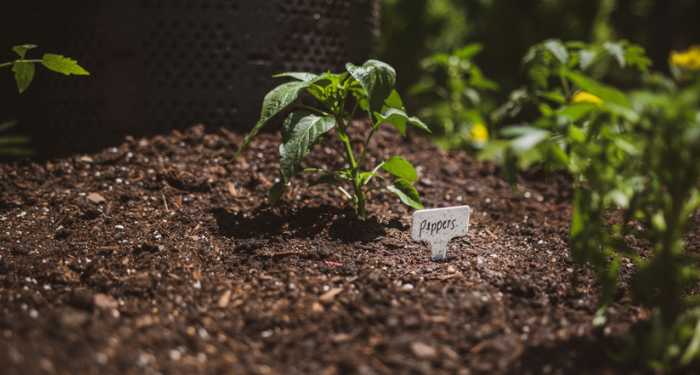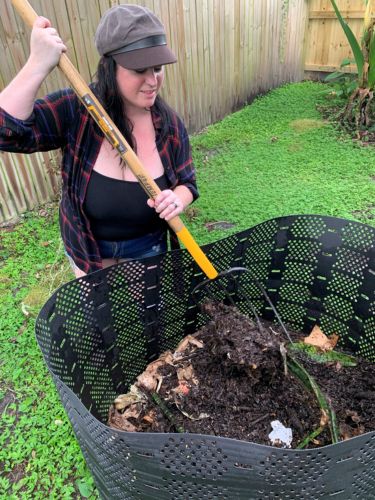How to Prepare Your Garden for Spring With the GEOBIN® Composter
Posted March 7, 2023 Spring is right around the corner, and that means it’s time to start preparing your garden for planting. One of the most important things you can do to ensure a successful harvest is to focus on soil health. By incorporating nutrient-rich organic matter into your soil, you’ll create the perfect environment for your plants to grow and thrive. One of the best ways to achieve this is by composting with the GEOBIN® Composter.
Spring is right around the corner, and that means it’s time to start preparing your garden for planting. One of the most important things you can do to ensure a successful harvest is to focus on soil health. By incorporating nutrient-rich organic matter into your soil, you’ll create the perfect environment for your plants to grow and thrive. One of the best ways to achieve this is by composting with the GEOBIN® Composter.
Why Composting is Important
Composting is the process of breaking down organic material into a nutrient-rich soil amendment. Composting with a GEOBIN Composter is a simple and effective way to turn your kitchen scraps, yard waste, and other organic materials into a valuable resource for your garden. The compost produced by a GEOBIN Composter enriches the soil with essential nutrients, promotes healthy microbial activity, improves soil structure and water retention, and reduces the need for chemical fertilizers and pesticides.
Composting food and yard waste also helps divert organic material from landfills. When our organic waste ends up in landfills, the lack of air in the environment causes the decaying matter to produce methane gas—a greenhouse gas roughly 25 times more potent than carbon dioxide as a heat-trapping gas. Composting not only provides gardeners with free compost, but also helps the environment.
The Benefits of Using a GEOBIN Composter
The GEOBIN Composter is an excellent choice for those new to composting because it’s simple to set up and use. In less than five minutes, you can set up the GEOBIN Composter and begin adding organic material. It’s also a cost-effective option for composting as it can be used year after year. The GEOBIN Composter is manufactured using high density polyethylene, which will not degrade over time and is chemically inert, meaning you don’t have to worry about chemical residues leaching into your compost and soil.
Tip: Avoid placing your compost in contact with low quality plastic materials that can degrade over time and leach chemicals or microplastics into your compost. We recommend avoiding unlicensed knockoffs or lookalikes of the original GEOBIN® Composter, as product formulations may be unknown (despite claims to be made of equal or similar material). Beware of what you put in your garden, and make sure you are using a genuine GEOBIN® Composter!
Preparing Your Garden for Spring Planting
Now that we’ve covered the benefits of composting with the GEOBIN Composter, let’s dive into how to prepare your garden for spring planting. The first step is to clean up any debris from last season. Remove any dead plants, weeds, or fallen leaves from the garden beds.
Next, loosen the soil with a garden fork or tiller. This will make it easier to plant your new crops and allow for better water and nutrient absorption. Compacted soil can be a problem because it reduces the amount of oxygen, water, and nutrients that can reach the roots of your plants, leading to stunted growth and poor yields.
After loosening the soil, it’s time to add compost. Spread a layer of compost over the garden beds and use a garden rake to work it into the soil. Compost will provide your plants with the essential nutrients they need to grow and thrive.
Using a GEOBIN Composter for Composting
 To compost with a GEOBIN Composter, start by selecting a location in your yard that’s easily accessible and receives partial sunlight. Assemble the GEOBIN Composter according to the instructions provided, and then begin layering your organic material.
To compost with a GEOBIN Composter, start by selecting a location in your yard that’s easily accessible and receives partial sunlight. Assemble the GEOBIN Composter according to the instructions provided, and then begin layering your organic material.
You can add a variety of organic materials, including fruit and vegetable scraps, grass clippings, leaves, and other yard waste to the GEOBIN Composter. Larger sticks and branches should be broken up or shredded to facilitate decomposition. It’s important to keep the compost moist but not too wet. You can add water to the compost as needed to keep it moist.
Once you’ve filled the GEOBIN Composter, it’s time to let nature take its course. The composting process will generally take about two months, depending on the type of materials you’ve added and the weather conditions. When the compost is ready, it will be dark brown, crumbly, and have a pleasant earthy smell. If you notice your compost smells rotten, you may need to monitor moisture levels or maintain a better balance of carbon and nitrogen. Head over to our blog post Why You Have Smelly Compost & How to Fix It.

